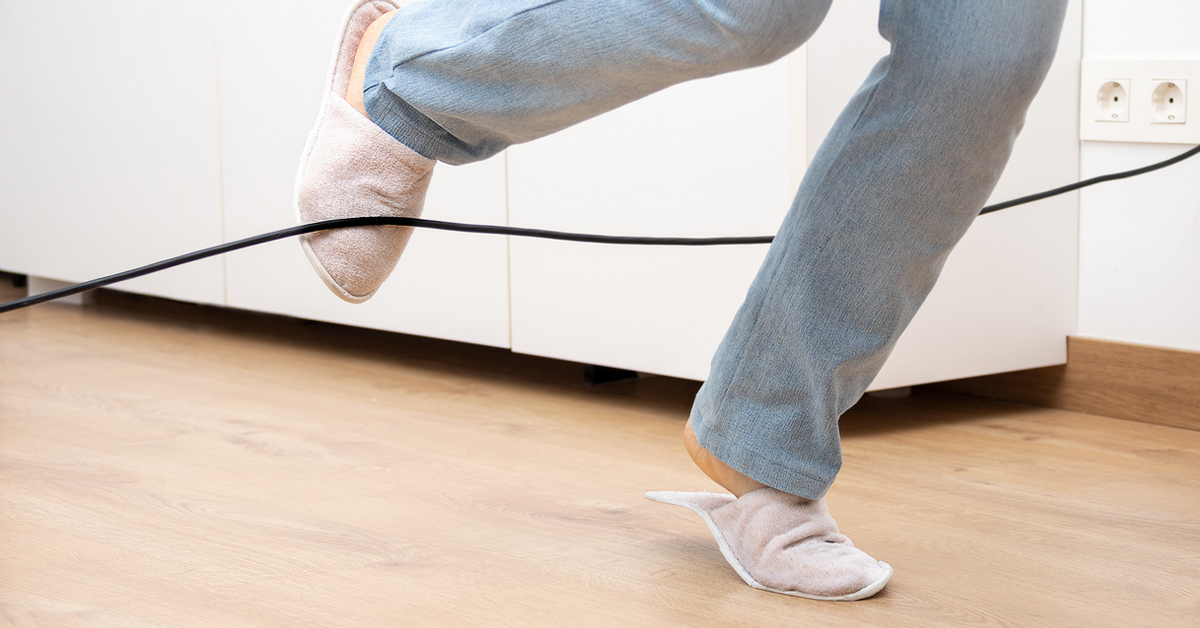We’ve all experienced some painful and inconvenient minor home accidents—stepping on a lego, tripping over a cord, or stubbing your toe on a coffee table. But what happens when a more serious accident occurs at home? UAB Medical West understands how upsetting it can be to suffer home injuries like cuts, burns, bruises, and poisoning. That’s why we came up with this helpful guide on when to call emergency services after suffering a home accident and what to do until they get there.
Home Accidents
The Center for Disease Control and Prevention estimates that unintentional injuries are the leading cause of death for Americans under the age of 40. Our homes are where we spend a big chunk of our daily life, so it’s no surprise that many injuries occur at home. Take a look at some of the most common at-home injuries and how to best prevent them.
Falls
Falls are among some of the most common home injuries and can lead to serious conditions like concussions, broken bones, and even death. The best way to prevent falls is by being cautious and aware of your surroundings. Keep toys and shoes out of the way to minimize tripping hazards and use non-skid mats in areas like the kitchen and bathroom. Additionally, if you have young children or elderly persons in your home, consider installing grab bars in the shower and gates around the stairs. If you or a loved one hit their head during a fall, it is advised that you seek medical attention to avoid potential complications.
If you fall at home and are having a difficult time getting up try rolling over to your side first, then push yourself up to a side sitting position, get on your hands and knees, and crawl to a piece of furniture you can use to pull yourself up. If you think you may have a concussion, call your doctor immediately.
Cuts
Minor to severe cuts are common at-home injuries and most often occur in the kitchen. To make your kitchen a safer space, make sure your knives are sharpened (it’s easier for dull knives to slip), make use of your cutting boards, and try not to walk around with a knife or scissors. Keep knives safely secured in a drawer or in a cutting knife block when they are not in use. Additionally, make sure that your first aid kit is always stocked up with bandages and alcohol for easy treatment—apply pressure to stop the bleeding, clean the wound, apply a topical antibiotic or petroleum jelly, cover the wound with a bandage. For more serious cuts that may require stitches, consult a medical professional right away.
Burns
Sure, you can burn yourself in the kitchen on your stove or your oven, but don’t forget about other potential burn hazards. Make sure to always keep your water heater below 120 degrees to avoid shower and bath burns. And use protective mittens when taking food out of the oven. And using splash guards can help minimize burns from hot oil splashes. If you do sustain a burn at home, hold the burn under cool (not cold) water, bandage the burn, and call your doctor to see if you need further medical attention.
Poisoning
Accidental poisonings most frequently occur amongst children because they are more likely to ingest a poisonous substance. It’s important to keep high-risk items out of reach of small children and pets—lock cabinets where medication and cleaning supplies are easily accessible. If you suspect a poisoning, contact Poison Control immediately for further instructions.
When to Call a Doctor
Home injuries occur all the time, and they can vary in their severity. If you sustain an injury in your home and your symptoms don’t subside with home treatment, it’s time to call a doctor. Additionally, a medical professional should be consulted right away if you sustained a head injury or if you suspect poisoning has occurred.
UAB Medical West in Birmingham, Alabama Cares About You Safety
